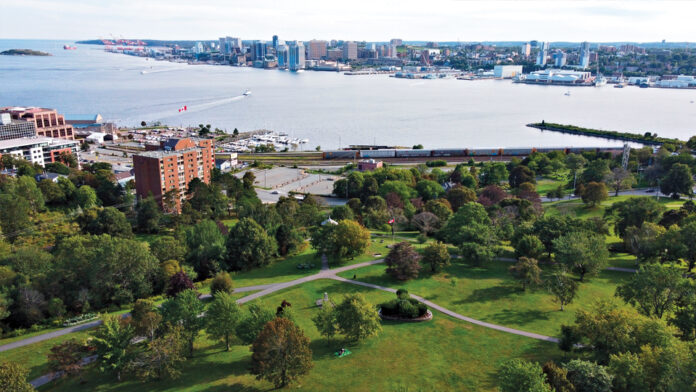By Nicole Storeshaw, Director, Government Relations, CHBA
Arecent and unanimous decision by the Supreme Court of Canada (SCC) provides greater certainty in the law related to how compensation for a “constructive taking” – or expropriation of land – must be determined. This is another positive precedent-setting outcome for CHBA’s developer members thanks in large part to successful CHBA intervention at the SCC.
With the sizable investment and long-term planning that goes into land acquisition, developers should not also need to factor into their risk assessment the possibility that the land could be expropriated by the municipality without fair compensation. Expropriation does happen, so the issue becomes about compensation, which is why the outcome of a recent appeal in St. John’s, Newfoundland – City of St. John’s v Wallace Lynch et al. – is very positive for CHBA, again setting a favourable precedent for similar cases, providing more certainty for CHBA developer members.
This is the second time CHBA has been a successful intervenor in a land expropriation case, the first being Annapolis v Halifax Regional Municipality where, in its verdict in late 2022, the court provided guidance on a constructive taking of property. In that case, the court ruled that municipalities cannot take away all uses of land without due compensation: an important decision for CHBA developer members.
In the St. John’s case, CHBA was involved in an appeal to ask the court to provide more direction to ensure that compensation is determined in a fair, consistent and equitable manner when property is taken by government. The outcome of this most recent case is another successful result at the SCC for CHBA’s developer members across Canada, and one that is even being lauded by the legal community in the U.S.
About the case
The Lynch family of St. John’s owned property under the jurisdiction of the City of St. John’s that allowed residential property development. In the 1990s, the property was newly identified as being within a watershed, and from that point in time residential development was no longer permissible and only three uses were allowed: Agriculture, forestry and public utilities. This is referred to as a “constructive taking” by the municipality, and compensation to the landowner is required. What was unclear was how the value of what was owed should be
calculated.
The matter of compensation was referred to the Board of Commissioners of Public Utilities. The Board later sent a special case to the Supreme Court of Newfoundland and Labrador requesting direction on whether compensation should be assessed based on the uses permitted by the existing watershed zoning (essentially, what the land was valued at after the municipality changed the zoning) or whether the new zoning should be ignored and the value determined as if residential development were permissible.
The Pointe Gourde rule
The question that was sent to the Supreme Court of Newfoundland and Labrador required the application of the Pointe Gourde principle. This principle dictates that when determining compensation in expropriation matters, no account should be taken of the expropriation or the development for which the expropriation is required. This rule has developed as a matter of fairness to ensure owners are not provided greater or lesser compensation on account of the planning for the expropriation and associated works for which their land is being acquired.
The consistent and fair application of the Pointe Gourde rule provides certainty to property owners and ensures fair compensation to those who have their property taken without consent. However, applying this rule has proven complicated in many circumstances and there has been very little direction from the courts on how to apply this rule.
CHBA’s involvement
CHBA opted to seek intervenor status once again in a case that was headed to the Supreme Court of Canada, given the precedent-setting importance it could have across the country. CHBA was represented by Shane Rayman, a leading expropriation lawyer and partner at Rayman Harris LLP who presented CHBA’s case before the Court in November 2023. “CHBA engaged in this appeal as it is important to ensure consistency and predictability in the law relating to the taking of property by government,” says CHBA CEO Kevin Lee. “The fair and consistent application of land expropriation rules decrease the risk of property ownership and ensures fairness to developers.”
What it means for CHBA’s developer members
The unanimous decision is a victory for developers who find themselves in similar situations, as the ruling now provides clarity and will create greater certainty in the determination of compensation.
In its decision, the court emphasized that governments cannot be permitted to downzone property in order to reduce the compensation payable to property owners. And while property owners are to not be placed in a better position than they would have been without the expropriation, the court’s ruling helpfully clarifies previous rulings on the topic. The court gave considerable weight to the submissions of CHBA and the arguments of the legal team at Rayman Harris.
This decision is a positive outcome for the developer community, as it provides a balanced and fair endorsement of the continued applicability of the Pointe Gourde principle. This clarification will help to ensure that the purpose of expropriation compensation statutes across Canada are maintained and that fundamental principles are honoured in the determination of compensation where land is taken in any form, which will help to limit the risk of investment for developers.
Nicole Storeshaw, Director, Government Relations, CHBA











